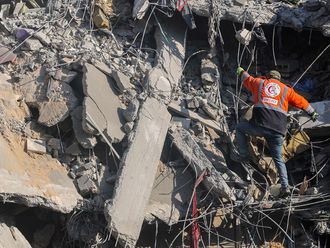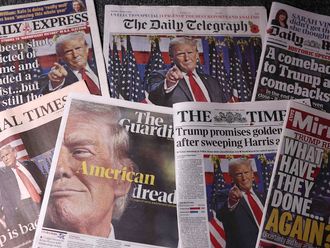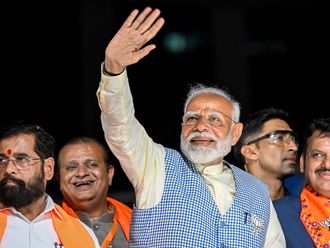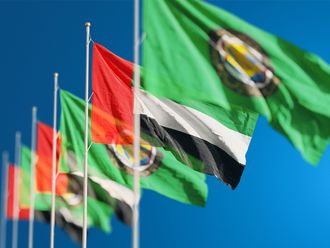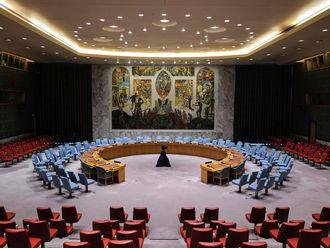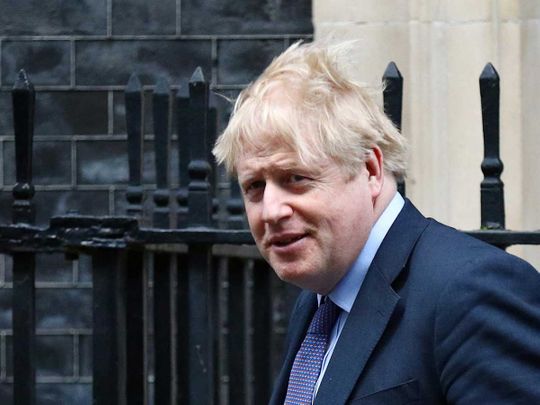
Boris Johnson likes to think big — especially when it comes to infrastructure projects. The bigger the better for the British prime minister.
It’s a habit he developed when he was the mayor of London for two terms between 2008 and 2016, and one that he’s now honing at the head of the UK government.
The trouble is that big projects come with big ticket prices — and those big ticket prices have a habit of swelling far beyond the original estimates. It’s one thing to think big, another to talk big — people begin to believe it, the project takes on a life of its own, and so inevitably does the cost.
When Boris was mayor, there was a lot of talk about expanding London’s Heathrow Airport. The two runways there are frightfully busy, the airport operates above 98 per cent capacity and restrictions on noise mean that take-offs and landings are halted overnight. Dubai International Airport, for example, operates round the clock, remains the world’s busiest in terms of passenger numbers for six straight years in a row and, if Heathrow is to keep up, it needs a third runway.
HS2 was first suggested a decade ago with a price tag of around £50 billon. That soared to £80 billion. Now, the cost will likely exceed £200 billion — or more.
Gatwick, the other main airport for London has a single runway. It could be more easily expanded, but is halfway to Brighton. Unlike Heathrow, travelling to it is its main drawback.
And when Boris was mayor, his big thinking solution wasn’t to expand either Heathrow or Gatwick, but build a brand new airport on an artificial island in the middle of the River Thames — just like the one in Hong Kong.
And that didn’t fly.
When Boris was mayor, he came up with the idea of a new bridge across the Thames. Not any bridge — a garden bridge. The projected price was £200 million (Dh952 million). It never was built. But Boris’ big thought cost London taxpayers £53 million nevertheless.
Boris buses
Then there are those Boris buses, the new red double-deckers that put a modern spin on the old red ones iconic to London. Boris bought a new fleet. They’re prone to breakdowns and, because so many passengers can dodge fares using the unmanned back doors, the buses now only use their front ones.
And now that Boris is prime minister, he’s thinking big again — but on a bigger scale.
During the election campaign, when there was criticism that his Withdrawal Agreement reached with the European Union would isolate Northern Ireland and treat it differently, Boris had a big thought: Build a bridge.
Boris is also spending £5 billion on buses in northern England, lowering fares and improving the miserable level of service there. That’s money far better spent than on the shiny new train set.
So now engineers and analysts are costing a bridge between the British mainland and the island of Ireland. At its narrowest point, the distance is just 19km across. The depth, however, is more than 330 metres in places. And because of the currents in the North Atlantic, the tides flowing down this narrow channel are very strong indeed, posing even a further challenge for any bridge. Putting down sure footings in that type of untried environment will be very difficult indeed. And difficulty translates as cost.
Whether the bridge between Northern Ireland and Scotland ever becomes a reality is one thing, past experience with Boris, his big thoughts and that garden bridge just across the 300 metres of the Thames, shows that even thinking comes with a hefty price.
In the past week, too, Boris has turned his thoughts to HS2. This is a high-speed train line that will run from Leeds on one spur and Manchester on another, joining up in Birmingham and on to London. It would cut the travel times between London and Manchester from 135 minutes to 68 minutes.
HS2 was first suggested a decade ago with a price tag of around £50 billon. That soared to £80 billion. Now, the cost will likely exceed £200 billion — or more. The economic case was made that for every £1 spent on HS2, £2.50 would be generated in the northern cities. Now it transpires that for every £1 spent, 60 pence will be generated.
Upgrading rail links to Liverpool, Manchester and Leeds
Part of the thinking was that HS2 would lead people to live in those northern cities on the line. But what’s not to say it will be people leaving those cities to go and work in London, knowing they can be there is just over an hour.
But Boris, as prime minister, is committed to HS2. He’s also spending £5 billion on buses in northern England, lowering fares and improving the miserable level of service there. That’s money far better spent than on the shiny new train set.
Right now, the mayors of Liverpool, Manchester and Leeds want to see the train line linking their three cities upgraded. Last month, the franchise operator was stripped of its rights for poor service, late trains and treating its passengers like cattle. Fixing that isn’t on Boris’ radar. He’s too busy thinking big.


